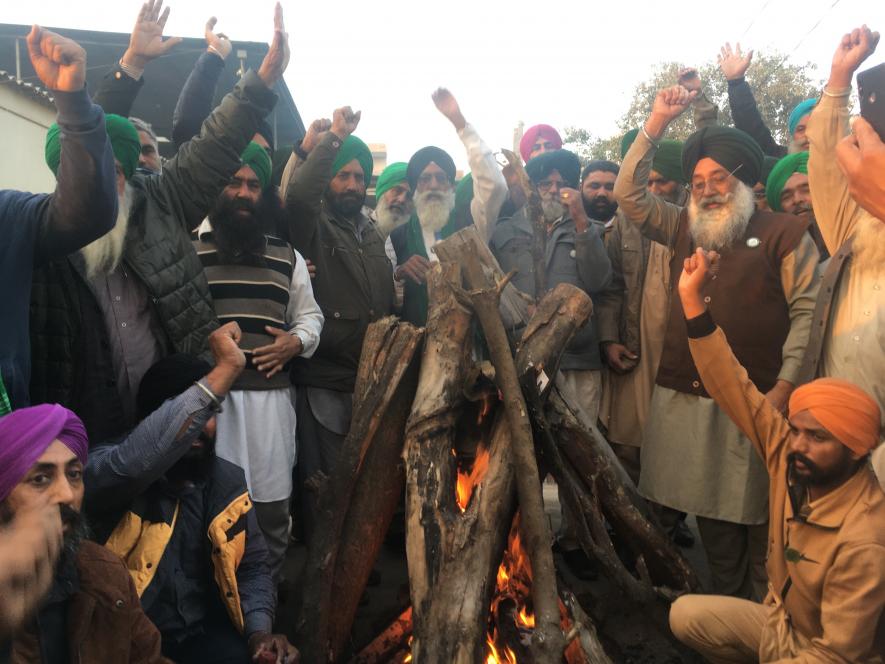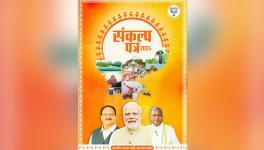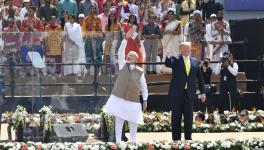Folklore Behind Lohri Strengthens Farmers’ Resolve at Tikri Border

Lohri Celebration by members of Bharatiya Kisan Union (Kadian) at Tikri Border. Image clicked by Ronak Chhabra
Bahadurgarh: It is hard to think of a festival without the associated string of folklore behind its celebration. Lohri, a festival predominantly celebrated in Punjab, isn’t an outlier.
Numerous tales – from that of Dulla Bhatti, known as ‘Robin Hood’ in Punjab’s rich history to the one of none other than the Sikh’s tenth Guru himself, Shri Guru Gobind Singh, and his last battle – are told each year around January 13, when the winter festival is celebrated. The next day is often seen as the financial New Year for farmers in the region, another event that witnesses celebration.
While the many lores, passed down generations, provide a deeper meaning to the festival, they seem to mean more this year to the protesting farmers at the gates of Delhi.
On Wednesday, farmers burned copies of the controversial Farm Laws in bonfires – a Lohri tradition. Their repeal constitutes one of the major demands of the ongoing agitation.
Multiple such bonfires were lit at the Tikri Border – one of the border protest sites that has thousands farmers from about nine different farmers groups – in the evening.
Staying put for a day shy of fifty days now, the protesting farmers say that they’re having to celebrate the festival away from their families this year. The pain of it, they add, won’t go in vain as the protesters will only emerge with more strength.
Dr. Satwant Singh, who recently completed his Ph.D. from Patiala’s Punjabi University, told NewsClick that Lohri was a festival associated with the culture and tradition of Punjab rather than historical facts or figures. “One cannot verify folklore but they surely are part of our culture,” he said.
Singh, who has been volunteering at the Shared Heritage Library – one of the many spaces created for book-lending and reading at the Tikri Border – added that the festival was largely celebrated to mark the “end of the harsh winters.” “Maybe the Modi government will also stop being this cold and would agree to repeal the Farm Laws,” he said.
Sixty-six-year-old Kamikara Singh from Ludhiana said: “Come Lohri every year, I would tell my grandkids about the tale of Dulla Bhatti – the ‘Robin Hood’ of his time.” The festival of Lohri is celebrated to remember his “valour” in “fighting against injustice,” according to Singh.
This year, however, Singh is away from his village and his family. He is at the Tikri Border with his comrades from Bharatiya Kisan Union (Ekta Dakunda) to participate in what he claims is “not so dissimilar” to what Dulla Bhatti had fought. “Now we are living under the rule of Modi but the injustice continues,” he said.
As Singh spoke an announcement from the stage interrupted him, informing the protestors that plays would be staged and songs played to remember Bhatt. “Let us dedicate today’s festival to Dulla Bhatti’s resolve to not back down. Let us show this government that like him, the farmers will also not accept anything that is draconian,” the announcement mentioned.
Sarbjeet Singh, 50, from Moga district, recounted another one. “On this day, Shri Guru Gobind Singh Maharaj fought his last battle against the Mughals. During the fight, guruji’s 40 disciples sacrificed their life and achieved martyrdom.” The fight was eventually won and the day is celebrated as Lohri. It was to mourn the loss of “40 Mukhtas (liberated ones)”, according to Singh from the BKU (Kadian).
The Kadian faction’s vice president Gurmeet Singh told NewsClick that as Guru Gobind Singh won despite all odds, the farmers will also register a win. “This is the people’s fight against an undemocratic government. Come what may, we won't accept the law nor any amendments to it. We want them to be repealed,” he said.
Sarjeet Singh, 60, from Shri Muktar Sahib wasn’t rueing not celebrating Lohri back home this year, with his district home to the “Maghi Mela” around this time each year. Every year the jathe bandiyan from across the Punjab would come to the Mela and celebrate together, Singh said.
Shri Muktar Sahib came to be recognised as the site of the said battle waged by Shri Guru Gobind Singh and the Mela is organised to pay tribute to the 40 martyrs. “But this year we are all here near the national capital, protesting. It shouldn’t have been this away but the Modi government needs to be taught a lesson,” Singh said.
The Samyukt Kisan Morcha, the umbrella group that is spearheading the ongoing movement, called to observe January 13 and 14 – celebrated otherwise as Lohri and Makar Sankranti – as ‘Kisan Sankalp Diwas’.
Sixty-five-year-old Nirmal Singh from Faridkot district, another volunteer in the library, believes the the younger generation will most probably celebrate the day as such in the years to come. “Til, Rewari, Gud (jaggery) – these sweets are usually associated with Lohri. Now what can be added to this list is also how people from different sections of society came together as part of farmers’ protest when Lohri was celebrated this year,” the retired private school teacher, who hails from a farming family, told NewsClick.
Asked what today’s Sankalp (resolution) for the youth would be, Singh said: “To remain active in fighting against the government’s policies that are harmful to the public at large.”
He added that the agriculture reforms are only “one of the many blunders” of the present ruling dispensation. “The days are gone when one can just sit at home and complain. The people need to hit the streets, just like these farmers.”
Get the latest reports & analysis with people's perspective on Protests, movements & deep analytical videos, discussions of the current affairs in your Telegram app. Subscribe to NewsClick's Telegram channel & get Real-Time updates on stories, as they get published on our website.
























